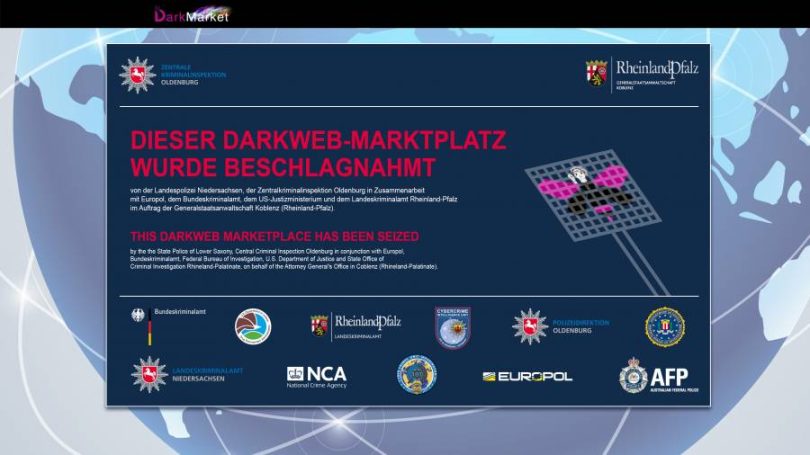The dark web has long been home to clandestine digital marketplaces, where anonymity, secrecy, and high-risk transactions define the ecosystem. Among the most notorious of these platforms are credit card (CC) marketplaces, vclubshop which have evolved from rudimentary forums to highly organized and professional operations. Understanding the evolution of CC marketplaces provides insight into the methods, trends, and operational sophistication of cybercriminal networks.
Early Days of CC Marketplaces
In the early days, CC marketplaces were often informal forums where stolen credit card data and personal information were traded openly. These platforms were generally small, lacked security, and were prone to scams. Buyers and sellers relied heavily on word-of-mouth recommendations and reputation systems that were easily manipulated.
Despite their rudimentary nature, these early marketplaces established the foundation for what would become a thriving underground economy. They highlighted the potential profitability of trading stolen financial information and demonstrated the demand for secure, reliable, and discreet digital marketplaces.
The Rise of Structured Marketplaces
As demand grew, CC marketplaces evolved from informal forums into structured platforms that mirrored legitimate e-commerce sites. Vendors and buyers were provided with user-friendly interfaces, searchable listings, and organized categories. Security became a priority, with many marketplaces vclubshop login introducing measures such as encrypted communication channels, vendor verification, and escrow systems.
This shift marked a turning point. The professionalism of these marketplaces not only increased trust among users but also reduced the risk of scams and law enforcement infiltration. By creating an environment that prioritized efficiency and reliability, CC marketplaces became more sophisticated and appealing to cybercriminals.
Modern CC Marketplaces
Today’s CC marketplaces are highly advanced, resembling legitimate online shopping platforms in both structure and functionality. They offer a wide range of products beyond just stolen credit card data, including:
- Fullz Packages: Comprehensive personal information, including social security numbers, addresses, and financial data.
- Bank Login Credentials: Direct access to victims’ online banking accounts.
- Gift Cards and Prepaid Cards: Increasingly popular due to their ease of use and anonymity.
- Digital Wallet Accounts: Access to platforms like PayPal, Venmo, and cryptocurrency wallets.
The diversification of products reflects the adaptability of cybercriminal networks and their ability to respond to market demands. Buyers can now access a comprehensive range of illicit digital assets in a single, secure marketplace.
Security and Operational Practices
Security is paramount in modern CC marketplaces. Operators understand that trust is critical in an anonymous environment. As a result, advanced operational security (OpSec) measures are standard, including:
- Encrypted messaging for all communication.
- Multi-factor authentication for user accounts.
- Escrow systems that hold funds until transactions are verified.
- Rotating or temporary domains to evade law enforcement detection.
These measures ensure both vendor and buyer safety while maintaining the platform’s longevity. Modern CC marketplaces are no longer just venues for trading stolen data—they are secure ecosystems designed for continuous, high-volume operations.
Vendor Verification and Reputation Systems
One of the most significant developments in CC marketplaces is the formalization of vendor verification and reputation systems. Buyers are more likely to trust vendors with proven track records, and many marketplaces require sellers to provide verification before offering products.
Feedback and rating systems allow users to assess vendor reliability, much like legitimate e-commerce sites. This structure discourages fraud, encourages quality, and fosters long-term loyalty. By combining anonymity with accountability, modern CC marketplaces strike a delicate balance between trust and discretion.
Cryptocurrency Integration
Cryptocurrency has become the backbone of CC marketplace transactions. While Bitcoin was initially dominant, privacy-focused cryptocurrencies such as Monero are increasingly popular due to enhanced anonymity.
The use of cryptocurrency allows for global transactions without reliance on traditional banking infrastructure. Payments are faster, harder to trace, and more secure, which reduces the risk of detection for both buyers and sellers. This integration of digital currency has become a defining feature of contemporary CC marketplaces.
Market Dynamics and Pricing Trends
Pricing within CC marketplaces has evolved alongside operational sophistication. Factors affecting prices include the freshness of data, the type of credit card, geographic location, and the completeness of personal information.
- Fresh credit card dumps command higher prices due to the potential for immediate fraudulent use.
- Fullz packages are more expensive than individual credit card numbers, as they provide a broader range of exploitable data.
- Geographic factors influence demand, with data from high-income countries often fetching premium prices.
These market dynamics illustrate that CC marketplaces operate on supply-and-demand principles similar to legitimate businesses, demonstrating a high level of professional organization.
Regional Trends in CC Marketplaces
Regional differences play a significant role in CC marketplace operations. Certain markets specialize in data from specific countries, reflecting the potential value and demand for that information. For example:
- North America and Western Europe often yield higher-value credit card data.
- Some marketplaces cater specifically to local audiences, offering regional banking credentials and digital payment accounts.
This localization demonstrates the strategic approach of cybercriminal networks, allowing them to maximize profits while tailoring offerings to market needs.
Law Enforcement and Countermeasures
The growth and sophistication of CC marketplaces have attracted attention from law enforcement agencies worldwide. Authorities employ tactics such as:
- Infiltrating forums and marketplaces.
- Tracking cryptocurrency transactions to identify operators.
- Coordinated international operations to shut down high-profile CC shops.
Despite these efforts, the decentralized nature of these marketplaces, combined with strong operational security, makes enforcement challenging. CC marketplaces continually evolve, adapting to law enforcement tactics and maintaining operational resilience.
Ethical Implications and Cybersecurity Awareness
While CC marketplaces operate illegally, their existence underscores the importance of cybersecurity awareness. Individuals and organizations must implement proactive measures to mitigate risk, such as:
- Using unique and strong passwords for all accounts.
- Monitoring financial statements for unusual activity.
- Enabling two-factor authentication.
- Educating employees on phishing and social engineering tactics.
Awareness of how CC marketplaces operate helps individuals better protect themselves against potential threats and reduces vulnerability to cybercrime.
The Future of CC Marketplaces
The evolution of CC marketplaces suggests several trends for the future:
- Increased automation: AI and bots may facilitate faster and more efficient transactions.
- Expanded digital offerings: Beyond credit cards, marketplaces may trade cryptocurrency accounts, NFTs, and other high-value digital assets.
- Enhanced anonymity: Use of privacy coins and encrypted communication methods will continue to increase.
- Globalized networks: Marketplaces will likely expand cross-border operations to cater to diverse regional demands.
These trends indicate that CC marketplaces will continue to become more sophisticated, professional, and resilient, posing ongoing challenges for cybersecurity professionals and law enforcement.
Conclusion
CC marketplaces have come a long way from the informal forums of the early days. Today, they operate with professionalism, sophistication, and high-level security measures. The evolution of these marketplaces reflects the growing complexity of cybercrime, the adaptability of criminal networks, and the ongoing challenges faced by law enforcement and cybersecurity experts.
Understanding the trends and mechanisms of CC marketplaces is not only essential for those in cybersecurity but also serves as a reminder of the importance of vigilance in protecting personal and financial information. While the dark web may remain a hidden and mysterious realm, knowledge of these digital operations equips individuals and organizations to better defend against emerging cyber threats.
The evolution of CC marketplaces—from chaotic forums to sophisticated digital ecosystems—highlights the ongoing transformation of cybercrime in the modern age, reminding us that vigilance, awareness, and proactive security measures are more important than ever.






